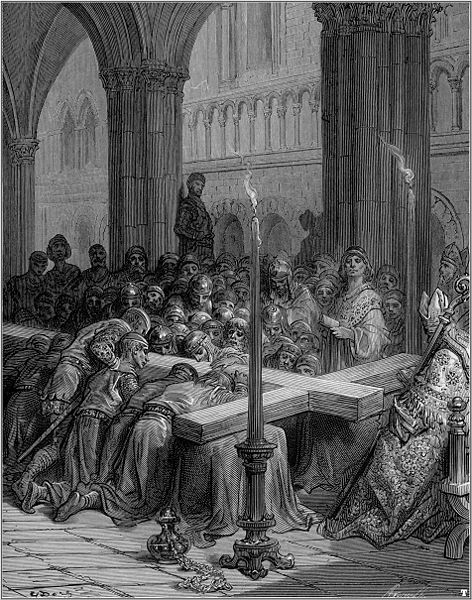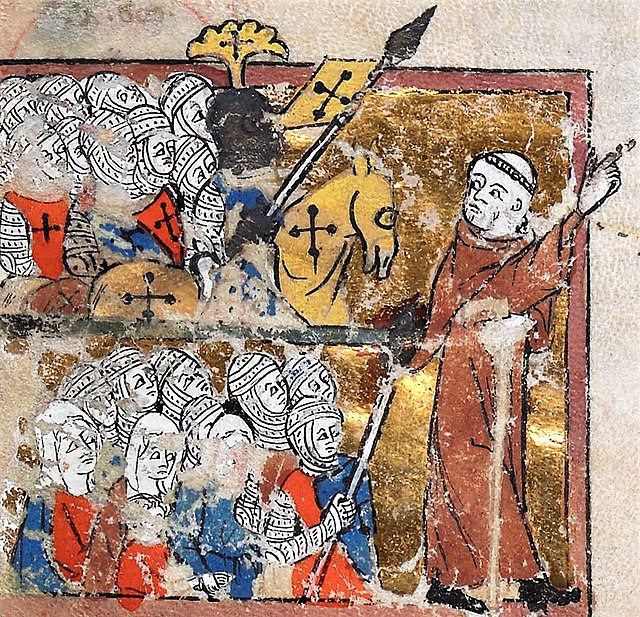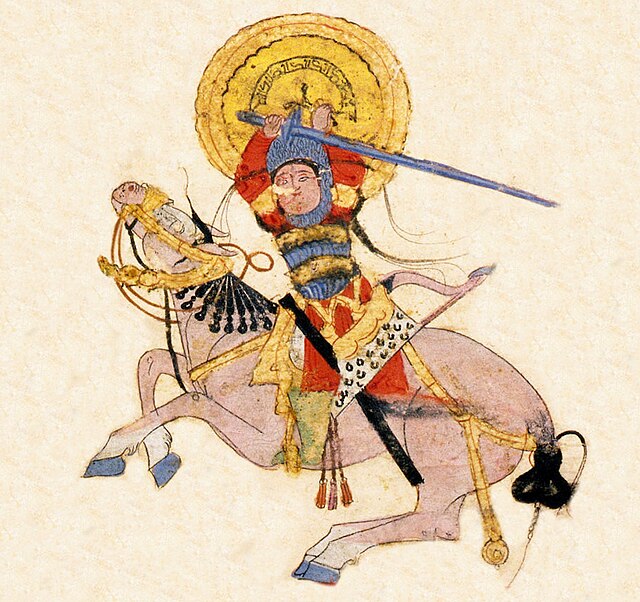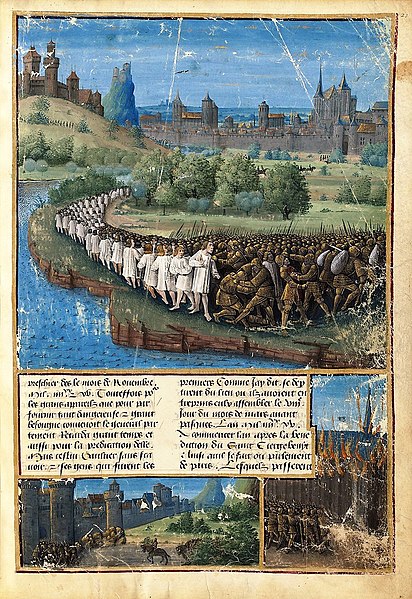Arnulf of Chocques was a leading member of the clergy during the First Crusade, being made Latin Patriarch of Jerusalem in 1099 and again from 1112 to 1118. Sometimes referred to as Arnulf of Rœulx, presumably after the village of Rœulx some 70km from his home village of Chocques, he was given the nickname Malecorne, meaning badly tonsured.
"The Discovery of the True Cross" (Gustave Doré)
The First Crusade (1096–1099) was the first of a series of religious wars, or Crusades, initiated, supported and at times directed by the Latin Church in the middle ages. The objective was the recovery of the Holy Land from Islamic rule. While Jerusalem had been under Muslim rule for hundreds of years, by the 11th century the Seljuk takeover of the region threatened local Christian populations, pilgrimages from the West, and the Byzantine Empire itself. The earliest initiative for the First Crusade began in 1095 when Byzantine emperor Alexios I Komnenos requested military support from the Council of Piacenza in the empire's conflict with the Seljuk-led Turks. This was followed later in the year by the Council of Clermont, during which Pope Urban II supported the Byzantine request for military assistance and also urged faithful Christians to undertake an armed pilgrimage to Jerusalem.
Miniature of Peter the Hermit leading the People's Crusade (Egerton 1500, Avignon, 14th-century)
Anatolian Seljuk horseman, in Varka and Golshah, mid-13th century miniature (detail), Konya, Sultanate of Rum.
Pope Urban II at the Council of Clermont. Illustration from a copy of Sébastien Mamerot's Livre des Passages d'Outremer (Jean Colombe, c. 1472–75, BNF Fr. 5594)
An illustration showing the defeat of the People's Crusade, from Sébastien Mamerot's Livre des Passages d'Outre-mer (Jean Colombe, c. 1472–75, BNF Fr. 5594)





